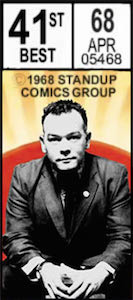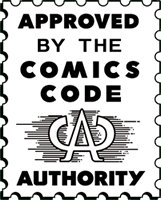Stew's Writing Written For Money
Jerry Springer: The Opera – Tour Diary
Richard Thomas’ multi-award winning musical Jerry Springer The Opera, which I directed, is finally on the road. Christian groups scared 1/3rd of possible venues off a proposed tour last year with threats of prosecution for blasphemy, but Plymouth Theatre Royal, Birmingham Hippodrome and His Majesty’s Theatre Aberdeen helped devise a rescue package on a reduced budget, and after a year of frustration we are finally up and running. Choreographer Jenny Arnold and I returned for our seventh attempt at staging JSTO, waiving our royalty payments, as have all the core creative team, to cut costs.
Sunday 22nd January.
I arrive in Plymouth for five days of technical rehearsals, at the Quality Inn, East of the multi-storeys, overlooking the sea. As a stand-up, I’ve been on the road for 12 of the last 14 months. I am at home in hotel rooms, with their tea bags, individually wrapped soaps, and their rubbish in-house Fantastic Four movie. On entering the neutral space of room 405, I line up the books I have brought, as a magical firewall. I’m packing Bertrand Russell, Kierkegaard, DH Lawrence essays, and Richard Holloway, the former Bishop of Edinburgh, so I’m up to speed in case for the defence. This may seem paranoid to you, but it was only the late entry of the BNP into the Plymouth Stop Springer campaign that seemed to fragment a coalition of 1200 religious protestors. Nevermind, I suppose it’s good that the BNP have finally formulated an Arts Policy.
Monday 23rd January.
Public Relations people at Plymouth Theatre Royal discuss how to rescue the show from the Christian right and restate its artistic credentials. Next I hear the Theatre’s house manager’s plans for dealing with any violent protestors. This doesn’t happen on the We Will Rock You tour. In the afternoon the cast arrive. I feel a paternal love for the young ones, and a filial gratitude to the veterans. An Equity rep tells them the union are fighting for their right to perform, and combating Sainsbury’s and Woolworth’s withdrawal of the opera’s DVD, following ten complaints from Christian Voice. I pitch in that it’s about economics, and while it’s clearly hypocritical of the much-trumpeted arts sponsors Sainsbury’s to cave in, ultimately Sainsbury’s are nothing more than another big business, and capitalism makes slaves of us all. Then I realise I’d probably better leave. Ironically, three of our tour venues are owned by ClearChannel, who banned the Dixie Chicks from their American radio stations after they bashed Bush.
Tuesday the 24th January.
The vast machine of the technical rehearsals lumbers into action. 21 actors wait patiently on stage for the following four days whilst lights and equipment are arranged around them, ready to be redeployed in minimum time for the tour’s next stop, Birmingham. Everyone is fighting the budgetary restrictions brought about by the Christian fundamentalists. A computerised flying gibbet, to swing Jerry over the fires of hell, would have cost more than our manual one, but might have saved expensive man hours. Rolf Saxon, the charming American actor playing Springer, rises and falls erratically for half a day whilst this clanking metaphor for his moral descent is calibrated for maximum symbolic effect.
Friday 27th January.
The gay-hate group Christian Voice assemble outside the theatre, praying for the souls of those involved in the production. Rolf is apparently portraying a version of the anti-Christ, a part neither Richard nor I remember writing. Even though only 35 protestors showed, it still created something of a frisson, and the standing ovation at the end of the show, which seems utterly innocuous and good natured in comparison to the complaints now levelled against it, was perhaps in part in formed by the audience’s irritation at the protests.
Saturday 28th January.
There were no protestors present at night but the piece was again, brilliantly received despite the reduced external excitement. I was very relieved by this, realising again that underneath all the arguments about meaning and freedom of speech and the idea of what you can and can’t say and about re-writing the rules of musical theatre, Jerry Springer The Opera remains a great night out. For the first three shows, the majority of available seats are sold.
Monday 30th January
Press night. Previous incarnations of the opera had enjoyed universal acclaim, with the exception of Michael Coveney in the Daily Mail and Maddy Costa in this paper, but will compassion fatigue set in? The Stage suggested that the collapse of the tour was a publicity stunt, which was annoying for people who’d spent a year working hard to salvage it. A local vicar wrote in today’s Plymouth Herald that the second half of the show, which is set in Hell, made him feel like he was ‘in Hell’, and said ‘you could read it as much as a celebration of Springer, as an attack on it.’ This of course, has always been our intention, and the cast have worked hard to avoid applying an ironic gloss to the characters, allowing the audience to make up their own minds about the subject matter. Thus, I was able to read his comments to the company as an example of how well they were doing. On the way out of the theatre I pick up a letter from a woman in Kingsteignton who is looking forward to the moment that I stand before God and am sent to Hell. Idiot.
Tuesday 31st January.
Journalists and an MP’s want me to speak about the government’s badly thought out Incitement to Religious Hatred Bill, which is debated today, and how it will affect the arts. I’d love to do this, but worry about being billed as a representative of the opera itself, and compromising my co-workers. But the bill appears to suggest, for example, that the opera could be closed down immediately if there were a complaint whilst police investigate, and that even our own intent for the piece would be no excuse for any offence caused, so I sign on. The show gets another ovation. I get a text from the Lib Dems’ Evan Harris saying the bill has been defeated.
Wednesday 1st February
I should have left Plymouth by now, except that I’m down to do an after-show talk later. Cast member Valda Aviks makes an unannounced case for the piece as a Christian allegory for free will, which was delightful, if unexpected. Everyone asks great questions and there’s none of the gay-hate angle which characterised questions from born-again Christians at a similar event in Aberdeen last year.
Thursday 2nd February
I finally headed home to see Nick Cave at the Apollo, and it’s a pleasure to watch his gnarly trio wig-out after overseeing a month of structural rigour.
Friday 3rd February.
In my new capacity a sin-eater for the religious guilt of the entire world, I fulfil a lifetime’s ambition by appearing on the Today programme, with a member of the Muslim Council, to discuss the Danish Mohammed Cartoon controversy. Everyone’s anxious to draw parallels with the opera’s persecution by the Christian right, but the Danish cartoonists wandered into a world of protected religious symbols they didn’t understand. We have used a set of icons whose implications we appreciate, within a tradition of Christian imagery. And you can already buy Virgin Mary snow-globes in Vatican Square, so it’s a bit late to start getting all protective now.
Saturday 4th Feb
I have a one-off performance of my 2005 stand-up show, 90’s Comedian, at the Hackney Empire. The piece was a response to my own experiences of religious censorship, but in the light of the Danish cartoon row I feel like its meaning is running away without my permission, and I find myself trying to re-edit sentences on stage so that I am not misunderstood. The final five minutes feels like a rally, which is always worrying.
Monday 6th Feb
Richard and I do an hour long live interview with a Yorkshire radio station, to try and diffuse the controversy before the show plays York later this month. Afterwards we realise how emboldened we both feel by the show’s touring success so far, and it is a pleasure to be able to speak from a position of strength and confidence again, rather than to be on the back foot apologising, often for things that aren’t even in the opera. For the record, there aren’t 8000 swear words. There’s 174. And Jesus isn’t in a nappy. OK?
Tuesday 7th Feb
I arrive in Birmingham, my old home town, for the press night at Birmingham Hippodrome where, as a child, I saw Dexy’s Midnight Runners, The Smiths and Rod Hull and Emu. The show plays to 1400, its biggest ever crowd, and goes down a storm. Local papers are going through what appears to be a now predictable cycle of outraged editorials and letters pages, followed by praise and articles saying how absurd the negative reaction is, when the piece is clearly about love, tolerance and forgiveness. Oh, and opera singers swearing of course. Outside a bedraggled protestor hands me a leaflet complaining that the show calls God ‘the fascist tyrant on high’. The line appears in the show on a note written by Satan and is derived from Milton’s Paradise Lost. Of course, none of the protestors have seen the opera.
Wednesday 8th Feb
We do a day of interviews in Birmingham and it’s brilliant to talk to people who have actually seen the show and know what’s in it, rather than to people who haven’t and don’t. I lost my temper with a Leicester journalist telling me about a coalition of Leicester vicars trying to stop the opera playing a publicly-funded venue there. “Public funded art is for everyone, not just some stupid vicars.” Word of mouth in Birmingham, where I once saw sausages thrown into the face of the vegetarian Smiths lead singer Morrissey, is good. At night, my old English teacher comes to see the show. “I expect he’s very proud,” says a cast member, sarcastically. Tomorrow there’s a public debate in York, and more in Leicester at the weekend, but having spent a year in the News, Jerry Springer The Opera is finally becoming Arts again.

